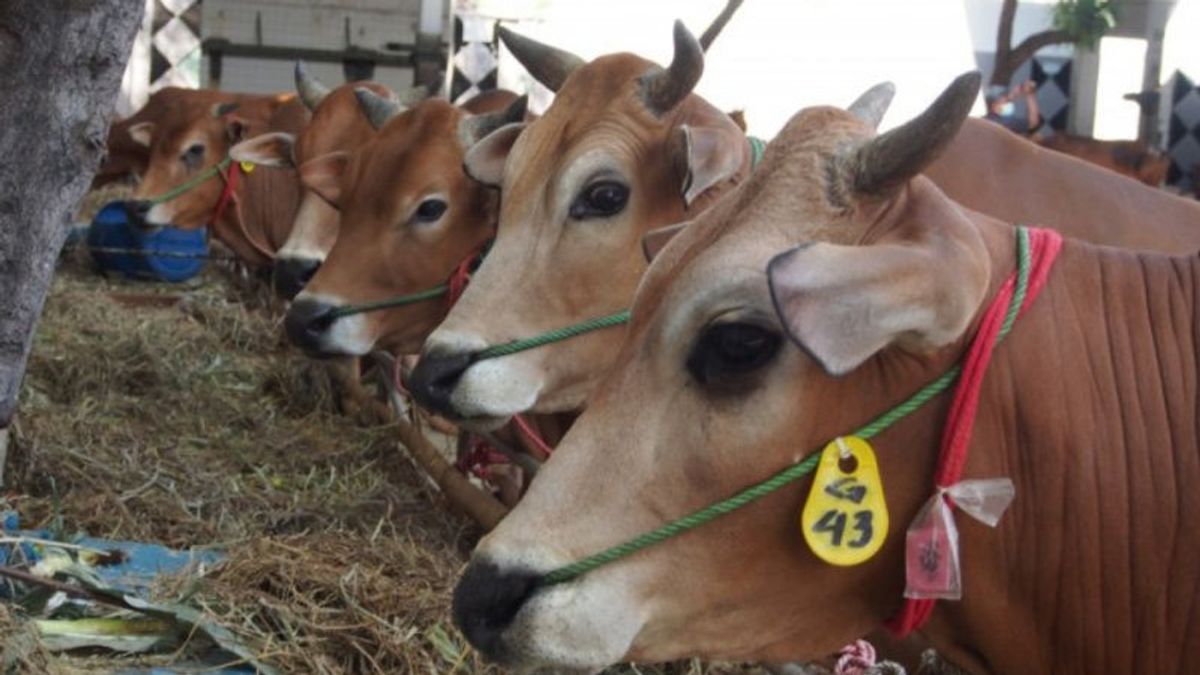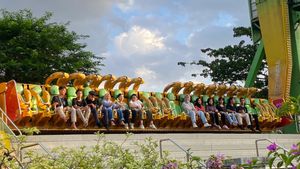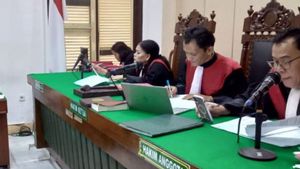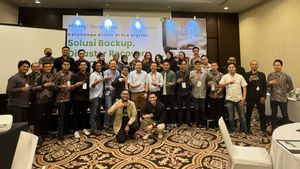SURABAYA - Mayor of Surabaya Eri Cahyadi issued a Circular (SE) as a guideline for selling livestock ahead of Eid al-Adha. This SE was issued to anticipate and prevent the transmission of eye and nail disease (PMk) outbreaks.
In SE number 451/9519/436.7.9/2022 issued on June 6, 2022, it contains guidelines for the implementation of qurban during an epidemic of mouth and nail disease (FMD). In the SE there are several important points that buyers and sellers of livestock need to know.
"One of the administrative requirements that livestock sellers need to pay attention to is that the sale of sacrificial animals must obtain approval from the Surabaya City Government (Pemkot) through the sub-district head," said Eri, in Surabaya, Thursday, June 23.
In addition, sacrificial animals traded must be in a healthy condition as evidenced by an Animal Health Certificate (SKKH) or a Veterinary Letter (SV) from the area of origin. In the SE, Eri also stated that livestock entering the Surabaya area must comply with the recommendations and regulations from the Food and Agriculture Security Service (DKPP) and the sub-district heads in each region.
"We will go down to make sure the cattle that enter Surabaya are equipped with a health certificate from the area of origin," he said.
The SE also includes the technical requirements for where to sell sacrificial animals, namely that traders of sacrificial livestock must have sufficient land, according to the number of animals. In addition, traders are required to provide fences or barriers in their trading areas so that animals do not roam and allow other livestock to enter the place of sale.
In addition, livestock traders must also provide facilities to accommodate waste. Before the waste is disposed of, the seller is required to first carry out disinfection or destruction. Facilities that must be disinfected are vehicles, equipment, animals, and non-treatable waste. Not only that, the SE also states that traders are required to provide a slaughterhouse and special isolation if one of the livestock is suspected of having FMD and cannot be treated.
Eri explained that livestock that were declared suspicious were immediately handled and treated to prevent the FMD virus. Eri said that until now he has continued to coordinate with the Surabaya Food and Agriculture Security Service (DKPP) and the sub-district head to monitor livestock entering the City of Heroes area.
"Every farm and those selling sacrificial animals will be examined one by one. Even though FMD is not harmful to humans, at least we make sure the cattle that come in are healthy and safe, while we also treat the suspected ones," he said.
Eri said that after obtaining approval to sell livestock, the local sub-district will conduct an inspection of the sales location to ensure that the technical requirements are met. After that, the local sub-district head proposed to the Surabaya Veterinary Authority or DKPP to conduct an inspection of the sacrificial animals to be traded.
"If it is declared that it has met the technical requirements of the sacrificial animal, it will get an Animal Health Certificate signed by the Surabaya City Veterinary Authority Official," he said.
Eri said that the SE also stated that an authorized veterinarian or animal health inspector has the right to provide recommendations or suggestions that must be obeyed by the qurban seller. If it is found that there are sacrificial animals that are not suitable and are suspected to be infected with FMD and other requirements that have not been met, the seller must be responsible for the cleanliness of the place and its environment.
In addition to the guidelines for selling livestock for sacrifice, the SE also mentions recommendations for safe purchasing or selecting animals for sacrifice, there are also guidelines and procedures as well as procedures for slaughtering sacrificial animals. "The sacrificial animals that are traded must be in a healthy condition, the seller is also obliged to report directly to the local sub-district head, every time there is an arrival of livestock starting from the type, number and origin," he said.
The English, Chinese, Japanese, Arabic, and French versions are automatically generated by the AI. So there may still be inaccuracies in translating, please always see Indonesian as our main language. (system supported by DigitalSiber.id)













